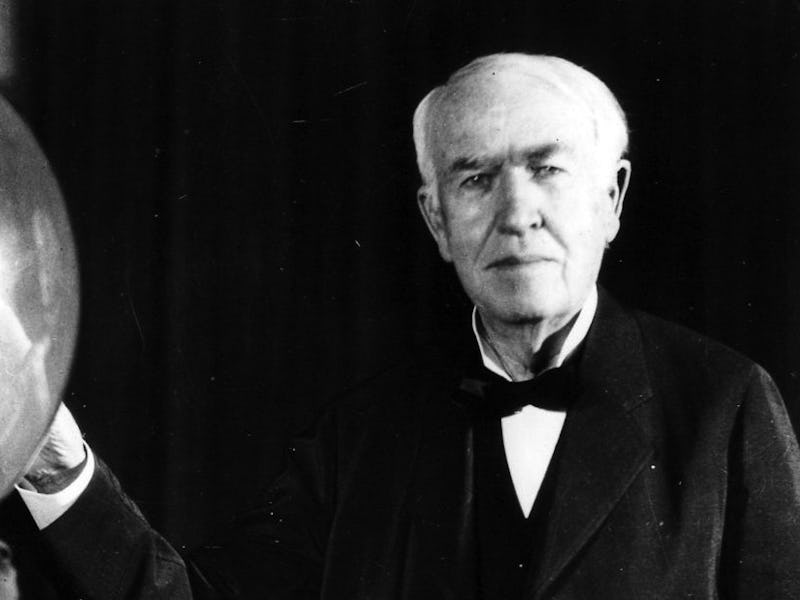How Thomas Edison Used Piracy to Ruin Iconic Filmmaker Georges Méliès
Edison was part of a movement.

Google celebrated the life of French filmmaker Georges Méliès on Thursday, with a commemorative doodle on the homepage. Méliès was celebrated in his time as he pioneered a range of special effects in his films, but he would spend some of his final days selling toys near a train station. Thomas Edison — a man that had some rather egocentric ideas about the future — was one of many that profited from Méliès’ work for their own gain, leading to the pioneer’s eventual fall.
Méliès was subject to the pitfalls of early copyright law. Perhaps his most famous film is the nine-minute 1902 “Le Voyage dans la Lune,” known as “A Trip to the Moon” in English. The high-budget movie (10,000 francs) tells the tale of a group of astronomers that visit the moon in a cannon-propelled capsule. It was a huge success, so huge in fact that filmmakers rapidly released imitation version. Sigmund Lubin released “A Trip to Mars” the following year. In 1910, Edison released and distributed a film in the United States called “A Trip to Mars,” which takes very heavy inspiration from Méliès’ original. Méliès’ film was a hit in the country, but he saw barely any of its returns.
Méliès had to call it quits by 1914. He missed out on the gains from international distribution, and his newer films failed to capture audiences in the wake of competition from the likes of Ferdinand Zecca. As World War I arrived, the French government destroyed many film reels to harvest the silver to win the war. With little chance of recapturing his former success, Méliès took a match to his films and watched them erupt in flames.
The filmmaker turned his attention to his studio, which he converted into a theater in the hope of making some money. This venture also failed by 1923. He spent his days with his wife Jehanne d’Alcy selling trinkets in a small shop by Paris’ Gare Montparnasse train station, a period he referred to as “true martyrdom.” In the ensuing years, a new generation of filmmakers once again celebrated his work and gave him a home at the Chateau d’Orly. He passed away in 1938 with a sliver of his former success.
While this may seem like an injustice against a great historic figure, TCM notes that Méliès committed some piracy of his own. His 1896 film “The Card Game” was a copy of a film shown by the Lumière brothers during their demonstration of cinematographic technology.
It’s not the first historic filmmaker Google has celebrated. Previous doodles have been dedicated to figures like Sergei Eisenstein, also known as the father of modern montage.